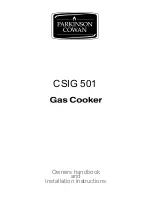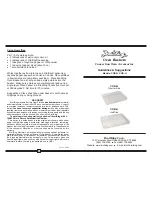
24
3
Maintenance of the cooler
3.1 Disconnect the cooler
Unplug power plug to disconnect the cooler.
3.2 Stop using the cooler
If the cooler not going to be used for a long time, please:
1 - Unplug the cooler
.
2 - Clean the cooler.
3 - Keep the cooler door open.
3.3
Clean the cooler
⚫
Dust behind the cooler and on the ground shall be timely
cleaned to improve the cooling effect and for energy
saving.
⚫
Check the door gasket regularly to make sure there are
no debris. Clean the door gasket with a soft cloth
dampened with soapy water or diluted detergent.
⚫
The interior of the cooler should be cleaned regularly to
avoid odors.
⚫
Please turn off the power before cleaning, remove drinks, shelves, etc.
⚫
Use a soft cloth or sponge to clean the inside of the cooler, with two tablespoons
of baking soda and a quart of warm water. Then rinse with water and dry with a
soft cloth. After cleaning, open the door and let it dry naturally before turning on
the power.
⚫
For areas that are difficult to clean in the cooler (such as narrow places, gaps or
corners), it is recommended to wipe them regularly with a soft rag, soft brush,
etc. and when necessary, combined with some auxiliary tools (such as thin
sticks) to ensure no contaminants or bacterial accumulation in these areas.
⚫
Do not use soap, detergent, scrub powder, spray cleaner, etc., as these may
cause odors in the interior of the cooler or contaminate food.
⚫
Clean the shelves with a soft cloth dampened with soapy water or diluted
detergent. Then rinse with water and dry with a soft cloth or dry naturally.
⚫
Wipe the outer surface of the cooler with a soft cloth that has been wrung out,
and dry naturally, etc., and then wipe dry. Do not rub or scratch the surface of
the glass door to prevent the door from being broken or scratched.
⚫
Do not use hard brushes, clean steel balls, wire brushes, abrasives (such as
toothpastes), organic solvents (such as alcohol, acetone, banana oil, etc.),
boiling water, acid, or alkaline items, which may damage the cooler surface and
interior. Boiling water and organic solvents such as benzene may deform or
damage plastic parts.
⚫
Do not rinse directly with water or other liquids during cleaning to avoid short
circuits or affect electrical insulation after immersion. Water should not soak the
operating control elements and lighting system on the glass door.
Notice:
Do not use detergent or solvent with sand or acid.
Содержание PWC436KS
Страница 28: ...26...



































